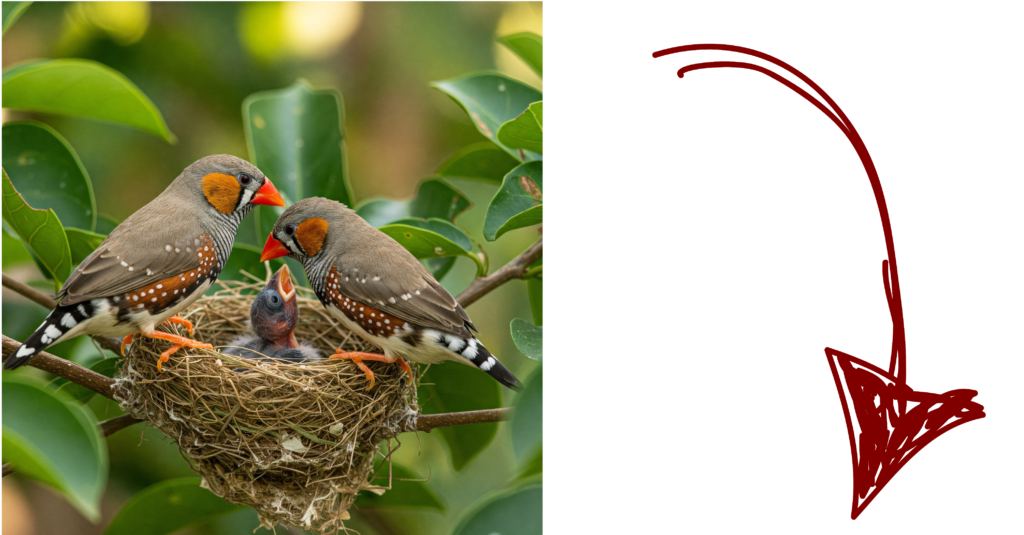The Songs of Love: What Birds Teach Us About Romance

You might think birds just sing for fun, especially during mating season, but it turns out there’s a lot more going on than meets the eye—or ear! When a bird starts belting out its beautiful song, it’s not just a random tune; it’s an intricate, brain-specific signal designed to attract the best possible mate. And if you think it’s all about charm, well, you’re only partly right. It’s actually a pretty savvy form of mate selection that’s deeply rooted in brain function, neurological integrity, and genetic fitness. When it comes to building a lasting connection, understanding each other’s personalities can make all the difference. That’s where the Five-Factor Model (OCEAN) comes in—an incredibly effective framework for predicting relationship success. Whether you’re dating, navigating marriage counseling, or using brain-validated tools to find your perfect match, OCEAN helps you understand the core traits that shape your relationship.
Let’s break it down, shall we?
When a female bird listens to a male’s song, she’s not just admiring his vocal prowess (although that’s part of it). She’s actually tuning in to some pretty key signals about his cognitive abilities. Each note, trill, and variation in the song tells the female how smart, well-wired, and well-conditioned he is. This is a crucial step in mate selection because, let’s face it—you wouldn’t want a partner who’s a little… “off.” If you did, you might end up with a mate who can’t navigate the sky, doesn’t know where to find food, or worse, can’t even help raise viable chicks!
You see, the birds are looking for more than just a catchy tune. A good song signals that the male has a brain that works well under pressure, can handle the challenges of flight (and not crash into trees!), and is skilled enough to find food for himself and the future family. A bird that can produce a complex, clear, and frequent song is also signaling that it’s in top physical condition—likely free from disease or neurological impairments. After all, a strong, consistent song requires healthy lungs and a healthy brain!
But it doesn’t stop there. A well-developed song also means the bird has had stable early development. Think of it as the bird’s version of showing off a stellar childhood. The more refined the song, the more it indicates genetic and environmental robustness. A bird that can handle early life stresses and still sing beautifully is probably a good bet for future generations.
Now, here’s the kicker: Birds are actually way better at selecting mates than we humans. Yep, we could learn a thing or two from them. But don’t worry—thanks to modern technology, you can now use cutting-edge tools to assess your own compatibility in a way that’s just as smart, rational, and science-backed as a bird’s song.
We take what the birds already know and apply it to human relationships—so you can find a partner who’s not only a good match for your personality but also has the neurological and genetic integrity to build a thriving, long-term connection. Because, just like birds, you want a partner who’s well-wired, healthy, and ready to create something lasting and meaningful.
So, while birds may have the upper wing in mate selection, with our technology, you’ve got the tools to make a more informed, brainy choice in love. Just make sure your song’s ready!
How We can Emulate?


- Neural and Cognitive Function: Producing complex songs requires precise neural coordination. A bird that can sing the correct species-specific song with complexity and accuracy demonstrates a well-developed brain and strong cognitive abilities.
- Genetic Integrity: Song learning is often influenced by genetic factors. Birds that produce strong, clear, and complex songs may be signaling high-quality genes that could be passed on to offspring.
- Health and Fitness: Singing is energetically demanding. A bird that can sustain frequent, high-quality singing is likely in good physical condition, free from disease or neurological impairments.
- Developmental Stability: Exposure to stress, malnutrition, or toxins during early development can disrupt song learning. A bird with a well-developed song is likely to have experienced stable early development, further indicating genetic and environmental robustness.
Overall, female birds use song quality as a key criterion in mate choice, as it reflects the male’s brain health, learning ability, and overall genetic fitness.
